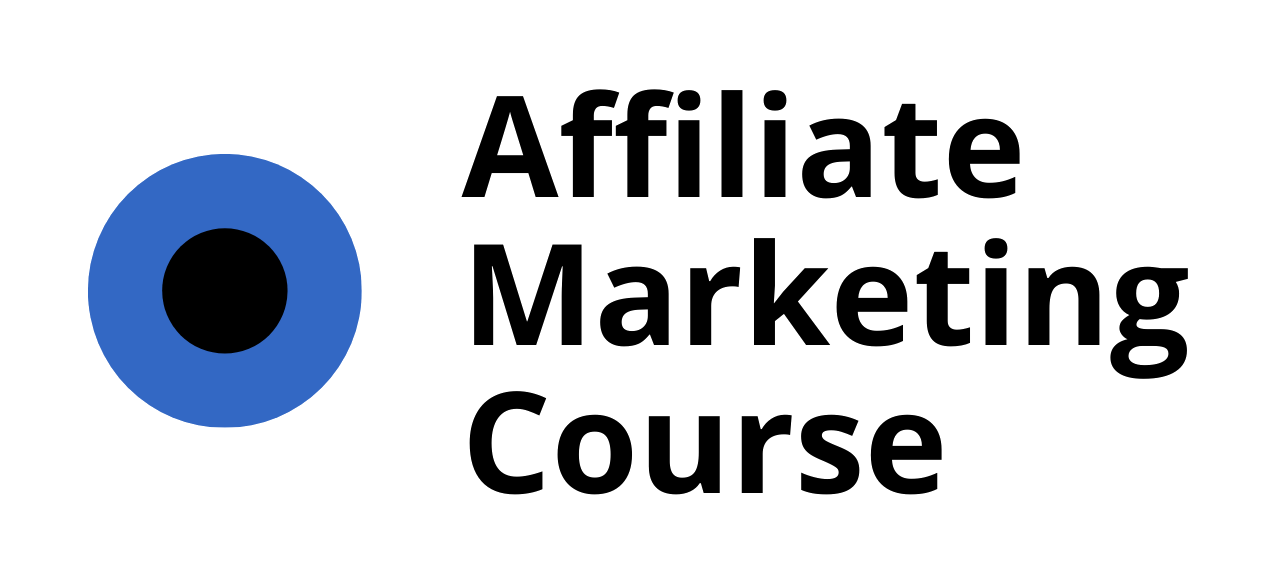Affiliate marketing for dummies may seem complex at first glance, but it’s a simple yet powerful strategy that can help businesses grow effortlessly. If you’re new to the world of marketing, affiliate marketing offers a unique opportunity to earn commissions by promoting products or services and referring customers to vendors. This approach not only enhances your marketing efforts but also provides a sustainable income stream. Whether you’re running an online store, a blog, or a small business, affiliate marketing for dummies can be a game-changer in your digital marketing arsenal.
In today’s competitive landscape, businesses are constantly seeking innovative ways to reach their target audiences. Affiliate marketing for dummies simplifies this process by leveraging existing customer networks and extending brand reach through trusted partnerships. By collaborating with other businesses or individuals, you can tap into their customer base and drive sales without the overhead of traditional advertising. This method is particularly appealing to entrepreneurs and marketers who are looking to scale their operations cost-effectively.
Moreover, affiliate marketing for dummies aligns seamlessly with broader digital marketing strategies. It complements email marketing campaigns, social media promotions, and content creation efforts, making it a versatile tool for comprehensive marketing campaigns. With the rise of e-commerce platforms like Amazon and the increasing reliance on online shopping, affiliate marketing has become a cornerstone of modern marketing tactics.
If you’re still unsure about how affiliate marketing works for dummies, don’t worry. This guide will walk you through the basics, helping you understand the core concepts and terminology, and providing actionable steps to get started. From commission structures to tracking metrics, we’ll cover everything you need to know to navigate the world of affiliate marketing successfully. By the end of this guide, you’ll have a clear roadmap for launching and optimizing your affiliate marketing program, ensuring long-term success in the ever-evolving digital landscape.

What is Affiliate Marketing?
Affiliate marketing is a type of performance-based marketing where individuals or businesses earn commissions by promoting products or services offered by other companies. This partnership allows affiliates to earn income by driving sales or leads through their unique links or codes.
How Does Affiliate Marketing Work?
1. **Affiliate Partnerships**: Companies offer affiliate programs to attract individuals or websites who can promote their products effectively.
2. **Unique Links**: Affiliates receive special links to promote these products.
3. **Commissions**: When someone clicks on the affiliate link and makes a purchase, the affiliate earns a commission from the company.
Types of Affiliate Marketing
1. **Paid Advertising**: Affiliates pay to promote products through various channels like social media or search engines.
2. **Organic Traffic**: Affiliates generate traffic through content creation, blogs, and social media organically.
Tracking Earnings
Affiliates use tracking links and analytics tools to monitor their earnings and optimize their strategies based on performance data.
Effective Promotion Strategies
1. **Understand Your Audience**: Tailor promotions to meet the needs and interests of your target market.
2. **Content Creation**: Create valuable content around products to attract and engage your audience.
3. **Honesty and Trust**: Provide genuine reviews and reliable information to build credibility.
Common Mistakes to Avoid
1. **Choosing Wrong Products**: Promote products that align with your audience’s needs.
2. **Overlooking Content Quality**: Invest in high-quality content to drive engagement and conversions.
Building Trust
Trust is crucial in affiliate marketing. Share honest reviews and personal experiences to connect with your audience.
Monetization Strategies
Affiliates can diversify income streams by integrating multiple strategies like selling their own products or offering consulting services.
The Future of Affiliate Marketing
Technological advancements and programmatic advertising are expected to shape the future, offering more targeted and efficient campaigns.
Why Affiliate Marketing?
It offers potential for passive income and flexibility, making it an attractive option for those looking to monetize their online presence.
Examples of Affiliate Marketing
E.g., A fashion blogger promotes clothing through affiliate links, earning a commission for each sale made through her link. Similarly, a YouTube channel features product reviews with affiliate links in video descriptions.
Competitor Analysis
Analyze competitors to identify gaps and opportunities, enabling you to refine your strategies and stand out in the market.
Affiliate marketing is a dynamic field with various opportunities for those willing to put in the effort and adapt to changes. By understanding the basics and implementing effective strategies, affiliates can achieve success in this lucrative endeavor.
What is Affiliate Marketing for Dummies?
Affiliate marketing is a simple yet effective way to earn commissions by promoting other companies’ products or services. It’s a performance-based marketing approach where you earn a percentage of the sales made through your unique referral links. Essentially, you act as an affiliate marketer, helping businesses reach new customers while earning a profit.
Why is Affiliate Marketing Popular?
1. **Cost-Effective**: Affiliate marketing is one of the most budget-friendly marketing strategies. Businesses only pay for results, making it ideal for startups and small companies with limited budgets.
2. **Scalability**: Affiliate programs can quickly scale your business growth. By partnering with multiple affiliates, businesses can reach a broader audience and increase sales without expanding their product lines or marketing teams.
3. **Performance-Based**: Affiliates are only compensated when they drive a sale or lead, reducing the risk for both parties. This model encourages affiliates to focus on delivering results.
4. **Flexibility**: Affiliate marketers can operate on their own schedule, offering flexibility for those looking to balance their careers with a side hustle or build a full-time income stream.
How Does Affiliate Marketing Work?
1. **Choose a Niche or Product**: Decide which products or services you want to promote. This could be anything from digital products to physical goods or services.
2. **Join an Affiliate Program**: Sign up for affiliate networks like AffiliateMarketingCourse.biz to access a variety of affiliate programs. Many companies offer their own affiliate programs, such as Amazon Associates, ShareASale, and ClickBank.
3. **Create a Strategy**: Develop a plan to promote your affiliate links through social media, blogging, email marketing, or content creation. Consistency is key to building trust with your audience.
4. **Leverage Content Creation**: Use videos, blog posts, infographics, or podcasts to share your affiliate links in a way that feels organic and valuable to your audience.
Examples of Successful Affiliate Programs
Some of the most well-known affiliate programs include:
- Amazon Associates : One of the largest affiliate programs, offering a wide range of products to promote.
- ShareASale : Known for its diverse range of merchants and competitive commission rates.
- ClickBank : Specializes in digital products, often offering high commission rates.
Getting Started with Affiliate Marketing
1. **Research and Choose Your Niche**: Select a niche you’re passionate about to ensure your efforts yield the best results.
2. **Build an Audience**: Whether through social media, a blog, or YouTube channel, focus on building a loyal audience that trusts your recommendations.
3. **Optimize Your Content**: Create high-quality, engaging content that provides value to your audience. This builds credibility and encourages them to click your affiliate links.
4. **Track and Analyze**: Use analytics tools to monitor your campaign performance and adjust your strategy based on what works best.
Why AffiliateMarketingCourse.biz?
At AffiliateMarketingCourse.biz , we provide comprehensive resources to help you master affiliate marketing. Our expert guides, courses, and community support help affiliates at every level succeed. Whether you’re just starting out or looking to advance your skills, we’ve got you covered.
By leveraging our platform, you can unlock the potential of affiliate marketing and take your career to the next level. Join us today and discover how to turn your passion into profits!

What Are the Basics of Affiliate Marketing for Dummies?
Affiliate marketing is a performance-based marketing model where businesses reward affiliates for driving sales and leads through their marketing efforts. It’s a win-win for both parties, offering affiliates a commission on qualifying sales while helping businesses reach a broader audience.
Steps to Get Started with Affiliate Marketing
1. Choose Your Niche
Pick a niche you’re passionate about and has demand. Whether it’s tech gadgets, health supplements, or home decor, focus on a specific area to tailor your efforts effectively.
2. Join Affiliate Programs
Sign up for affiliate programs offered by brands you believe in. Platforms like Amazon Associates , ShareASale , and Google AdMob are great places to start.
3. Create a Website or Blog
Build a professional website or blog to showcase your content. Use Bluehost or SiteGround for hosting, and set up a content management system like WordPress .
4. Drive Traffic
Use SEO and content marketing to attract visitors. Write valuable content, optimize for keywords, and promote your articles through social media, email marketing, and paid ads. Tools like SEMrush can help track your progress.
5. Monetize Your Efforts
Earn commissions by promoting products and services. Place affiliate links strategically on your site, recommend high-quality products, and engage with your audience to build trust and drive sales.
Common Mistakes to Avoid
- Don’t overlook content creation – consistent, high-quality content is crucial for attracting and retaining visitors.
- Avoid aggressive selling tactics – focus on providing value rather than pushing products.
- Don’t neglect SEO – optimizing your content for search engines ensures your affiliate links get seen by more people.
- Forget to leverage analytics – use tools like Google Analytics to track performance and adjust strategies accordingly.
Tools and Resources
To succeed in affiliate marketing, invest in these essential tools:
- Hosting Services: Bluehost , SiteGround
- Content Management System: WordPress
- Email Marketing Platform: Mailchimp
- SEO Tools: SEMrush , Moz
- Analytics: Google Analytics
Final Thoughts
Affiliate marketing offers a scalable way to earn income while helping businesses grow. By following these steps and avoiding common pitfalls, you can build a profitable affiliate marketing career. Start today and see the results tomorrow!

How Does Affiliate Marketing Work?
Affiliate marketing is a performance-based marketing model where a business (the merchant) pays a sales commission to individuals or other businesses (affiliates) for driving sales and traffic to their websites or sales channels.
Step-by-Step Process
- Join an Affiliate Program: Affiliates typically sign up for a merchant’s affiliate program. Each program may have unique rules, such as commission rates, payment methods, and promotional materials.
- Promote Products or Services: Affiliates create content (e.g., blog posts, videos, social media posts) or use their network to promote the merchant’s products or services. They often use a unique affiliate link to track their referrals.
- Earn Commissions: When someone clicks on the affiliate link and makes a purchase or signs up for a service, the affiliate earns a commission. The commission rate varies depending on the affiliate program.
- Build Traffic and Relationships: Affiliates focus on building an audience and establishing trust to drive consistent sales and commissions over time.
Benefits for Merchants
- Reach a Broader Audience: Affiliates can attract customers that merchants might not otherwise reach.
- Cost-Effective Marketing: Merchants only pay for results, making affiliate marketing a cost-effective strategy.
- Increased Sales Potential: Affiliates can help boost sales by promoting products to their audience.
Types of Affiliate Programs
- Traditional Affiliate Programs: Standard programs where affiliates earn a commission on qualifying sales.
- Hybrid Programs: Combine traditional affiliate marketing with other revenue streams, such as lead generation or subscriptions.
- Digital Affiliate Programs: Focus on promoting digital products like e-books, software, or online courses.
Tips for Success
- Choose a Niche You’re Passionate About: Focusing on a niche ensures you stay motivated and provide authentic recommendations.
- Create Valuable Content: Share in-depth reviews, tutorials, and guides to establish yourself as an authority in your niche.
- Stay Updated on Trends: Keep an eye on industry trends to ensure your promotions align with what’s popular.
Compliance and Disclosure
- Be Transparent: Clearly disclose your affiliate relationship to maintain trust with your audience.
- Follow Guidelines: Adhere to legal requirements, such as the Federal Trade Commission (FTC) guidelines in the U.S., to avoid penalties and ensure compliance.
By following these steps and tips, you can effectively leverage affiliate marketing to grow your business or earn additional income.
Best Affiliate Marketing Programs for Beginners
Starting with affiliate marketing can be overwhelming, but choosing the right program makes it much easier. Here are some of the best affiliate marketing programs tailored for beginners:
1. Amazon Associates
- Broad Range: Offers millions of products across various categories, making it ideal for diverse niches.
- User-Friendly Platform: Easy to sign up and navigate, with reliable tracking tools for affiliates.
- Commission Rates: Typically ranges between 1% to 10%, depending on the product category.
- Popular Choice: Highly recommended for newcomers due to its simplicity and widespread recognition.
Join Amazon Associates
2. ClickBank
- Digital Products Focus: Specializes in eBooks, online courses, and software, perfect for promoting educational content.
- High Commission Rates: Commissions can reach up to 75% for high-ticket items, offering significant earning potential.
- Niche-Specific Opportunities: Great for targeting specific audiences interested in health, fitness, or personal development.
Visit ClickBank
3. ShareASale
- Fashion and Lifestyle Focus: Ideal for bloggers or influencers in the fashion, beauty, or lifestyle niches.
- Wide Range of Merchants: Connects affiliates with top brands across various industries, including retail and services.
- Competitive Commissions: Offers competitive rates, often higher than Amazon Associates for certain merchants.
Explore ShareASale
4. Shopify Affiliate Program
- E-commerce Focus: Perfect for existing or aspiring Shopify store owners looking to promote their products.
- Customizable Options: Allows for highly customizable affiliate links and commission structures.
- Higher Earnings Potential: Commissions can range from 15% to 30%, depending on sales volume.
Shopify Affiliate Program
Choosing the Right Program
• Amazon Associates is excellent for broad appeal and ease of use.
• ClickBank is ideal for promoting digital products.
• ShareASale is a great fit for fashion and lifestyle niches.
• Shopify is perfect for e-commerce enthusiasts.
Each program has unique benefits, so your choice should align with your niche and business goals. Start with one that matches your interests and scale up as you gain experience.

What is Affiliate Marketing Simplified for Dummies?
Affiliate marketing is a type of marketing where you earn a commission by promoting other companies’ products or services. Essentially, you become an advocate for these products, helping people find solutions while earning a profit.
How Does Affiliate Marketing Work?
1. **Sign Up**: Join affiliate programs that align with your audience or niche. These programs typically offer unique links (tracking codes) to promote their products.
2. **Promote Products**: Share these affiliate links through your website, blog, social media, or email lists. When someone clicks your link and makes a purchase, you receive a commission.
3. **Earn Commissions**: Most affiliate programs pay based on the sales generated from your referrals. Commissions vary depending on the program, ranging from 1% to 50% or more of the sale price.
Steps to Get Started
1. **Choose a Niche**: Focus on a specific area where you have expertise or interest. This helps attract a targeted audience.
2. **Create a Platform**: Build a website or blog where you can share content and affiliate links. Social media platforms and email lists are also effective channels.
3. **Join Affiliate Programs**: Sign up for affiliate networks like Amazon Associates , ShareASale , or Commission Junction .
Find the Right Products to Promote
1. **Research High-Demand Products**: Look for products that solve common problems in your niche. Tools like Google Trends can help identify popular items.
2. **Check Competitors**: Analyze what other affiliates are promoting to stay competitive. Consider offering unique angles or exclusive deals.
Monetization Methods
1. **Content Creation**: Integrate affiliate links into blog posts, videos, or podcasts. This method builds trust and provides valuable information to your audience.
2. **Influencer Partnerships**: Collaborate with influencers or bloggers to promote products. Their audience can be highly targeted and engaged.
3. **Email Marketing**: Send emails with affiliate links to your subscribers, offering them special discounts or exclusive offers.
Challenges to Overcome
1. **Competition**: Many affiliates are vying for the same audience. Standing out requires creativity and unique value propositions.
2. **Compliance**: Adhere to regulations like the Federal Trade Commission (FTC) guidelines to avoid legal issues and maintain trust with your audience.
Conclusion
Affiliate marketing is a powerful way to monetize your passions and expertise. By forming meaningful connections with your audience and promoting quality products, you can build a sustainable income stream. Start small, stay focused, and continuously adapt to market trends to achieve long-term success.




0 Comments